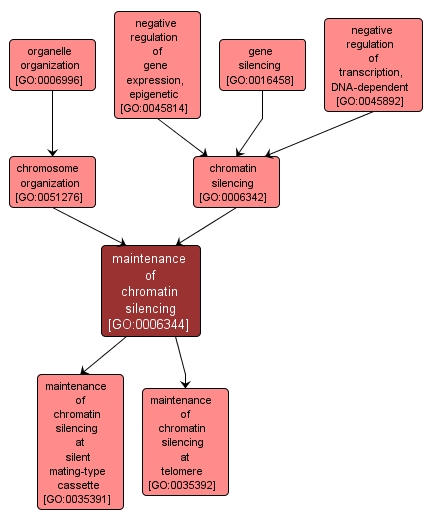GO TERM SUMMARY
|
| Name: |
maintenance of chromatin silencing |
| Acc: |
GO:0006344 |
| Aspect: |
Biological Process |
| Desc: |
The maintenance of chromatin in a transciptionally silent state such as heterochromatin. |
Synonyms:
- maintenance of heterochromatic silencing
|
|

|
INTERACTIVE GO GRAPH
|














